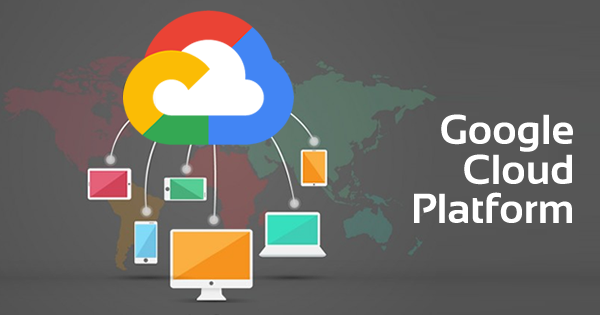Are you a cloud architect with GCP professional cloud architect certification under your belt? But don’t know where to start or how to elevate your career and take the next step? Then, this blog is just what you need.
While Google Professional Cloud Architect certification opens the door to numerous opportunities, you still need to prioritize your skillset and evaluate which field interests you the most and what role will give you maximum growth.
To make the process easier for you and help you understand your options, this blog will discuss the salary and job outlook after Google Certified Professional Cloud Architect Certification and the opportunities and scope available.
But before that, let’s have a sneak peek into the certification first. Time to dive in.
Google Cloud Professional Cloud Architect certification – Overview
Google Cloud Architect Certifications empower organizations to harness the capabilities of Google Cloud technologies. Armed with a deep comprehension of cloud architecture and Google Cloud, they craft, build, and oversee resilient, secure, scalable, highly accessible, and dynamic solutions that align with business goals.
The certification exam for Professional Cloud Architect evaluates your proficiency in:
- Creating and strategizing a cloud solution architecture
- Overseeing and provisioning the infrastructure for the cloud solution
- Designing for security and compliance
- Analyzing and enhancing technical and business processes
- Managing the implementation of cloud architecture
- Ensuring reliability in both solution and operations
Suggested Background: At least 3 years of industry experience, with at least 1 year dedicated to designing and overseeing solutions utilizing Google Cloud services.
Also Read: Free Questions on Google Cloud Certified Professional Cloud Architect Certification
Why should you take the Google Cloud Professional Cloud Architect certification?
Obtaining the Google Cloud Professional Cloud Architect certification offers several advantages:
- In-Demand Profession: The rapid evolution of cloud computing is creating a high demand for experts in cloud architecture. As a Google Cloud Certified Professional Cloud Architect, you position yourself as a sought-after professional in this dynamic field.
- Lucrative Compensation: Google Cloud-certified cloud architects often command competitive salaries due to the strong demand for their skills. Specialized knowledge in cloud architecture can lead to attractive remuneration packages.
- Versatile Expertise: Cloud architects straddle the realms of business and technology, possessing in-depth knowledge of cloud platforms, infrastructure, security, and scalability. This role allows you to develop a versatile skill set, opening doors to diverse career opportunities within cloud computing.
- Impactful Role: As a cloud architect, you are pivotal in designing, implementing, and managing cloud-based solutions for organizations. Your work can shape technological infrastructures, optimize operations, and contribute to the growth and success of businesses.
- Continuous Learning: Cloud computing continually evolves, necessitating staying abreast of the latest technologies and best practices. Working as a Google Cloud Certified Professional Cloud Architect exposes you to ongoing learning opportunities, enabling you to expand your knowledge and skills as the field advances.
- Google Cloud Platform (GCP) Excellence: With Google Cloud being a leading service provider, expertise in GCP provides a competitive edge. The Google Cloud Certified Professional Cloud Architect certification showcases your proficiency in designing and implementing cloud solutions on GCP, a highly valued skill for organizations utilizing or considering adopting the Google Cloud Platform.
GCP Professional Cloud Architect Jobs
The career prospects promised by Google certifications are dynamic and versatile. By leveraging the opportunities, you will create significant milestones for yourself and validate your deep expertise in the domain.
Here are some job roles you must check out after becoming a Google Certified Professional cloud architect.
As a Cloud Data Engineer, your primary responsibilities include designing and implementing data solutions within the cloud environment. Collaborating with other teams, you’ll identify data sources and construct pipelines for extracting, transforming, and loading (ETL) data into the cloud. Your role entails designing and overseeing cloud-based data storage solutions, including BigQuery and Cloud Storage.
The average salary of a Google Cloud data engineer is around USD 118,206.
Roles and Responsibilities
- Data Pipeline Development: Design, develop, and maintain data pipelines for extracting, transforming, and loading data from diverse sources into cloud-based storage and processing systems.
- Data Integration: Integrate and orchestrate data from various systems, databases, and APIs to establish a unified and reliable data ecosystem.
- Data Storage and Processing: Implement scalable and efficient data storage and processing solutions using BigQuery, Dataflow, or Apache Spark technologies.
- Data Governance and Security: Ensure data quality, integrity, and security by implementing data governance frameworks, access controls, and encryption mechanisms.
- Data Analytics and Visualization: Collaborate with data analysts and scientists to facilitate data analysis, modeling, and visualization, empowering data-driven decision-making.
Cloud solutions architect
As a Cloud Solutions Architect, your core responsibilities involve designing and implementing tailored cloud solutions for clients. You will collaborate closely with clients to comprehend their business needs, creating customized solutions that align with their requirements.
Critical aspects of your role include designing and deploying intricate cloud infrastructure and managing cloud security. The average yearly salary for cloud architects starts from USD 144,037.
Roles and Responsibilities
- Solution Design: Collaborate with stakeholders, understand business requirements, and architect end-to-end cloud solutions using various platforms, including GCP.
- Architecture Development: Create high-level and detailed architecture designs, prioritizing scalability, security, reliability, and cost-effectiveness.
- Technical Leadership: Provide technical guidance to development teams, ensuring adherence to architectural best practices and standards.
- Cloud Migration: Evaluate existing systems, plan and execute migrations to cloud environments, and optimize workloads for improved cloud performance.
- Solution Optimization: Continuously assess and enhance existing cloud solutions to boost performance, efficiency, and reliability.
Cloud Governance: Define and implement governance frameworks and policies to ensure compliance, security, and cost management across cloud environments.
As a Cloud DevOps Engineer, your core responsibility is to develop and maintain infrastructure as code (IAC) for cloud-based solutions. Collaborating with other teams, you’ll automate the deployment and management of cloud infrastructure and applications.
Your role involves implementing continuous integration and continuous deployment (CI/CD) pipelines to enhance the speed and efficiency of development. The average Yearly Salary starts from USD 110,759.
Roles and Responsibilities
- Continuous Integration and Deployment: Implement CI/CD pipelines to automate applications’ build, testing, and deployment on cloud platforms.
- Infrastructure Automation: Use configuration management tools like Ansible or Puppet to automate the provisioning and management of cloud infrastructure.
- Monitoring and Logging: Implement monitoring and logging solutions for visibility into application performance, availability, and resource utilization.
- Collaboration and Communication: Work closely with development and operations teams to foster collaboration, streamline processes, and ensure effective communication.
- Incident Management and Troubleshooting: Respond to and resolve incidents, identify root causes, and implement preventative measures.
Cloud Security Engineer
As a Google Cloud Certified Professional Cloud Security Engineer, your primary responsibility is to ensure the security of cloud-based solutions. Collaborating with other teams, you’ll identify and mitigate security risks, implementing best practices.
Your role includes designing and implementing security policies and procedures to ensure compliance with industry standards and regulations. The average yearly salary starts from USD 121,150.
Roles and Responsibilities
- Security Architecture: Design and implement cloud security architectures to safeguard data, applications, and infrastructure in cloud environments.
- Compliance and Risk Management: Assess security risks, define and implement security controls, and ensure compliance with relevant regulations and industry standards.
- Identity and Access Management: Develop and maintain access control policies, implement multi-factor authentication, and manage user identities and permissions.
- Security Monitoring and Incident Response: Establish security monitoring systems, analyze logs and alerts, and respond to security incidents promptly.
- Security Audits and Assessments: Conduct security assessments, vulnerability scans, and penetration testing to identify and address potential vulnerabilities.
Cloud Infrastructure Engineer
As a Cloud Infrastructure Engineer, your primary responsibility is to construct and maintain the foundational infrastructure supporting cloud-based solutions. Collaborating with other teams, you’ll ensure the infrastructure’s reliability, security, and scalability. Your role involves deploying and managing cloud resources and services, including computing, storage, and networking. The average Yearly salary starts from USD 127,066.
Roles and Responsibilities
- Infrastructure Deployment: Deploy and configure cloud infrastructure resources, such as virtual machines, storage, and networking components, based on project requirements.
- Automation and Orchestration: Develop scripts, templates, and automation tools to provision, manage, and scale cloud resources efficiently.
- Monitoring and Troubleshooting: Implement monitoring and alerting mechanisms to ensure infrastructure components’ availability, performance, and security. Identify and resolve infrastructure-related issues.
- Infrastructure as Code: Utilize infrastructure-as-code tools, such as Terraform or Cloud Deployment Manager, to define and manage cloud infrastructure configurations.
- Collaboration and Support: Work closely with development and operations teams to ensure infrastructure meets application requirements and provides technical support.
Salary Outlook for Google Certified Professional Cloud Architects
The salary outlook for a Google Certified Professional Cloud Architect is encouraging, reflecting a buoyant job market and substantial earning potential. Here are key considerations:
Average Salary
According to sources like Glassdoor and ZipRecruiter, reported average salaries range from $141,000 to $176,000 per year.
According to ZipRecruiter, hourly wage averages $70.79, with a range of $62.50 to $79.57.
Factors Affecting Salary
Experience
- Entry-level: 1-3 years of experience, with salaries ranging from $80,000 to $120,000. Focus on basic cloud architecture tasks and hands-on experience.
- Mid-level: 4-7 years of experience, with salaries from $120,000 to $160,000. You will lead smaller projects, manage teams, and demonstrate in-depth knowledge of Google Cloud Platform.
- Senior-level: 8+ years of experience, with $160,000 and above salaries. Oversee complex projects, wield strategic influence, and mentor junior architects.
Industry
- High-paying industries: Finance, healthcare, and technology often provide 10-20% higher salaries for cloud architects due to their critical role in data security and scalability.
- Non-profit or government: Salaries may be lower but offer benefits like job security and public service impact.
Company Size
- Large enterprises: Competitive salaries and comprehensive benefits due to their resources and established structures.
- Startups: May offer lower salaries with equity options and a high-growth environment.
Job Market Outlook
- Growing demand: The need for cloud architects is expected to grow by 30% by 2026, creating ample opportunities.
- Skills shortage: The current supply of skilled cloud architects cannot meet the demand, keeping salaries high.
- Specialization: Focusing on specific areas like AI/ML or security can enhance job prospects and earning potential.
Factors to consider before choosing your career path
The Google Professional Cloud Architect certification opens doors to various career paths, influenced by several factors:
Your Interests and Strengths
- Technical vs. Business Focus: Decide if you prefer technical details or a strategic, business-oriented role. Cloud Solutions Architects and Cloud Technology Consultants focus on technical expertise, while Cloud Enterprise Architects and Cloud Business Development Managers emphasize strategy and business solutions.
- Industry Preference: Consider specializing in an industry you are passionate about, like healthcare or finance, to align your cloud architecture skills with your interests.
Your Current Skills and Experience
Existing IT Background: Leverage experience in networking, security, or DevOps to specialize in related cloud architect roles.
Soft Skills & Communication: Strong communication, problem-solving, and collaboration skills are crucial for success in any cloud architect role.
Market Trends and Job Opportunities
- Emerging Technologies: Stay updated on trends like AI/ML, big data, and IoT, as expertise in these areas is increasingly sought-after.
Location: Research job opportunities and salary trends in your desired location or work model (remote vs. on-site).
Company Culture and Values: Choose a company with a culture and values that align with your own for a more fulfilling career experience.
Summary
Hope this blog helps you get a comprehensive view of your job and career path after you become a Google Cloud Certified Professional Cloud architect.
While The Google Professional Cloud Architect certification provides you with many opportunities, it is essential for you to thoroughly analyze your interests, skills, the tech you want to work with, experience, and industries.
Apart from jobs, another stepping stone after Google Cloud Professional Cloud Architecture certification is to gain advanced Google certifications. You can go for Google Cloud DevOps, Google Cloud Developer, and Google Cloud security learning paths.
Want to learn which among these is the best fit for you? Check out Whizlabs training programs for a holistic view of these courses. You will not only gain a dynamic portfolio of skills but also sharpen your knowledge of sought-after domains with our practice papers, video lectures, hands-on labs, and sandboxes.
- Top 25 AWS Data Engineer Interview Questions and Answers - May 11, 2024
- What is Azure Synapse Analytics? - April 26, 2024
- AZ-900: Azure Fundamentals Certification Exam Updates - April 26, 2024
- Exam Tips for AWS Data Engineer Associate Certification - April 19, 2024
- Maximizing Cloud Security with AWS Identity and Access Management - April 18, 2024
- A Deep Dive into Google Cloud Database Options - April 16, 2024
- GCP Cloud Engineer vs GCP Cloud Architect: What’s the Difference? - March 22, 2024
- 7 Ways to Double Your Cloud Solutions Architect Role Salary in 12 Months - March 7, 2024



